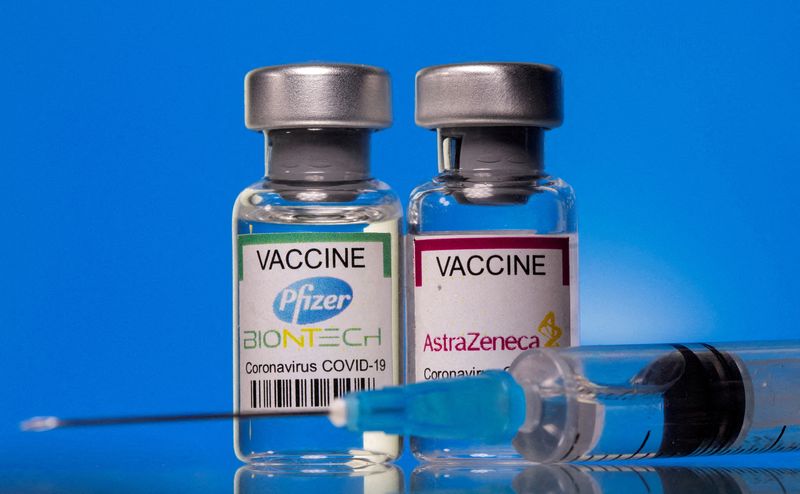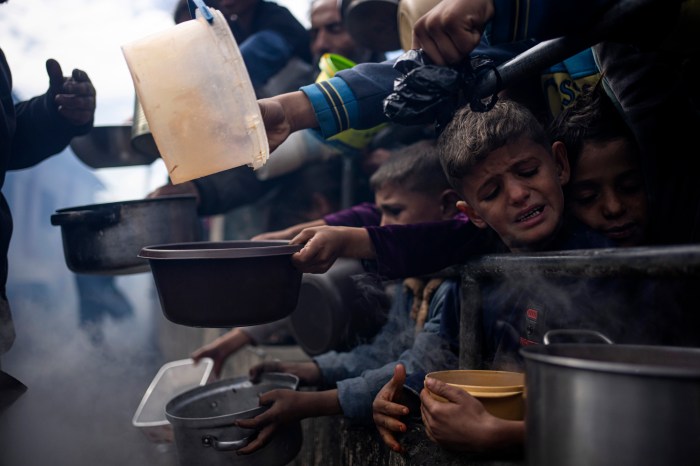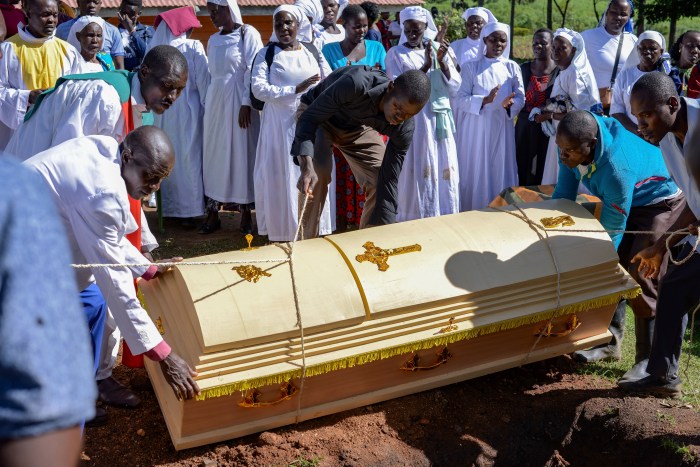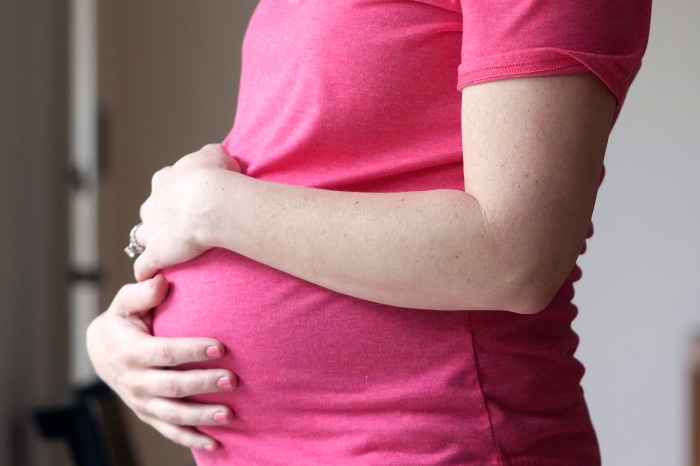LUSAKA (Reuters) – Zambia will introduce COVID-19 booster vaccines as it battles the respiratory disease which has infected over 200,000 people and killed more than 3,000, Health Minister Sylvia Masebo said on Thursday.
The southern African nation also plans to start vaccinating children agred 12-17, who until now have not been elegible for the COVID-19 jab, Masebo said at a media briefing.
“Zambia will begin to administer the booster vaccines for COVID-19 commencing on 27th December, 2021,” Masebo said.
Masebo said primary vaccination, currently below 15% of the eligible population, would however remain a priority as Zambia seeks to raise its coverage to 70% by June next year.
Zambia was now battling a fourth wave of COVID-19, Masebo said, and more cases of the Omicron variant continued to be detected.
The booster vaccines would be administered to adults above 18 years and priority would be given to health workers and later those with health conditions that made them vulnerable.
The booster vaccines would later be made avaialble to those who had been fully vaccinated and were willing to take another jab to enhance or restore their immunity, Masebo said.
Those who took AstraZeneca, Sinopharm, Pfizer and Moderna could take a booster six months after full vaccination while Johnson & Johnson receipients could take it after two months.
Masebo said the government was concerned about the rapidly spreading community infection, including children below the age of 18, who had not been spared from severe disease and death.
“The council of ministers resolved that Zambia will begin to administer the Pfizer vaccine, which has been found to be safe and effective in children 12 years and upward,” Masebo said.
Most people now being treated with severe disease had not been vaccinated against COVID-19, Masebo said.
(Reporting by Chris Mfula; Editing by Giles Elgood)



















